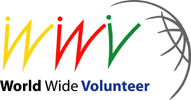
 | Printer-friendly version |
Book available at Download book (1759 K)
It was at the African Regional Conference in Bamako in 2002 that the volunteer sector first became involved in the process of the World Summit on the Information Society (WSIS). Since then, volunteers and volunteer organizations have actively contributed both to the preparatory process of the WSIS, the Geneva Summit and the Tunis phase. As one of the families of the International Civil Society Bureau, the WSIS Volunteer Family brings together organizations working with volunteers both locally and at an international level (1) , as well as volunteers themselves. In this article, I would like share some of the outcomes of the work and active participation in the WSIS of a sector that is often underestimated, or even overlooked. The concepts presented in this paper synthesize the outcomes of a collaborative effort of the Volunteer Family. They also outline some of the challenges before us for the future of a society of knowledge accessible to all.
Volunteering is a global fact of life, a mass social phenomenon involving hundreds of millions of people around the world who offer their time, skills and knowledge for the well-being of their neighbors, community or society at large.
Volunteers have played an active role in information technologies since the genesis of the modern information age. Many of the key components we use each day, are in fact, to a great extent, the result of volunteer effort. Well-known examples include Internet protocols, open sources software and the World Wide Web itself.
Volunteers are teaching the use of information and communication technologies (ICTs) and working at a grassroots level to reduce the digital divide between those who have access to technology and those who do not, through human capacity building and literacy programs. Volunteers are also raising awareness about the possibilities of these technologies (e.g. by providing outreach to local users in community telecenters).
Furthermore, volunteers can facilitate the production and dissemination of local content, enhancing cultural and linguistic diversity through ICTs.
New forms of volunteering have emerged through the availability and use of ICTs. One such application is Online Volunteering (also referred to as e-volunteering), a new way of collaborating through the Internet, with a different continent or in one's own city. In this way, volunteers translate documents, create Internet sites for non-profit organizations, advise local communities through online fora and chat facilities on technical issues related to ICTs, regardless of the distance between partners, often combining onsite and online collaboration. In this sense, ICTs are opening up attractive new opportunities for involvement, especially for young people, which can be enhanced through increased collaboration between the volunteer sector and university networks. The availability of technology can thus result in a significant increase in the number of people who are able to contribute their time, skills and knowledge to development, including people living in other parts of the world, homebound individuals and people with disabilities.
Online resources can help the volunteer sector conduct more successful recruitment and awareness raising campaigns. Successful examples include www.hacesfalta.org, a volunteer portal offering volunteer opportunities in Spain and Latin America; www.onlinevolunteering.org, the online volunteering site of United Nations Volunteers Programme (UNV); and the www.SeniorWeb.nl, a Dutch web site involving older persons in a society with an increased number of retirees, to name just a few.
While volunteerism largely happens in the informal and non-profit sector, multi-actor partnerships can strengthen and enhance it. One such form is employee volunteering, building partnerships between the volunteer sector and the private sector. "Employee volunteering" or "employee engagement" may be described as the giving of employees' time and skills to the benefit of the communities in which they operate. This is done through a three-way partnership between the employer, employee and the beneficiaries of the volunteer effort. Forms of corporate volunteering can also increase the chances for youth on the labor market, as employees or even as entrepreneurs, for example setting up local cybercafés. Private, public and voluntary sector organizations constitute an enormous reserve of resources, skills and expertise, which can be called on to support local schools, communities and organizations. Businesses on the other hand, benefit from a much-improved public image, and better skilled and motivated employees.
Volunteers can help train ICT trainers, but also get training themselves by exchanging knowledge. In the context of a developing country, this increases the critical mass of qualified ICT specialists available locally, and reduces the dependency on personnel coming from abroad. Sylvie Niombo, Director of Azur Développement, an NGO training women on the use of ICTs in the Congo (Brazzaville), points out that many young students are still leaving the Congo to study in Europe, because locally, there are no or very few opportunities for such training: While some Congolese information technology specialists have been trained in higher education schools in Kinshasa, the demand remains much greater than the training opportunities available. Development structures such as NGOs, associations, and cooperatives generally do not have the means to hire qualified personnel, limiting the effectiveness of the organization. Volunteers thus bring much needed assistance, contributing to the success of local projects.